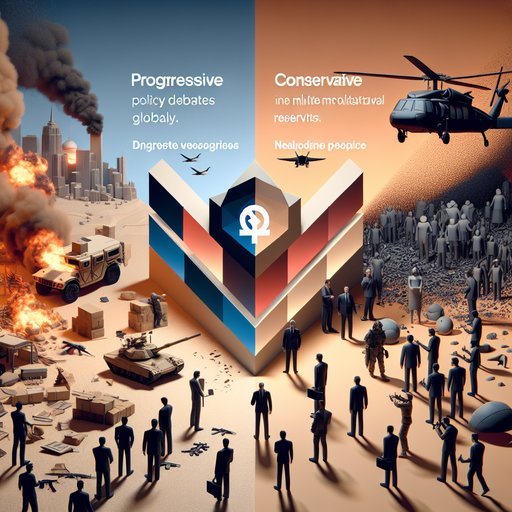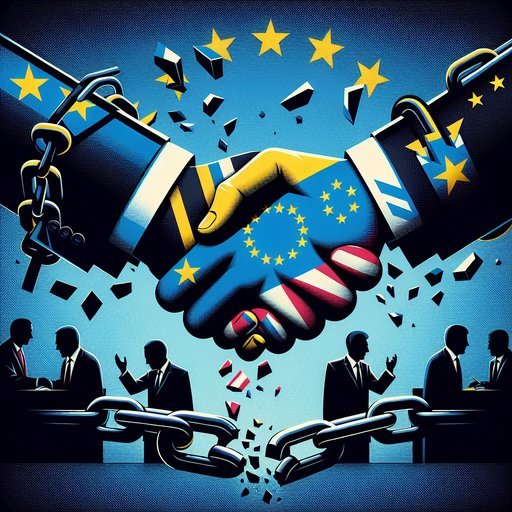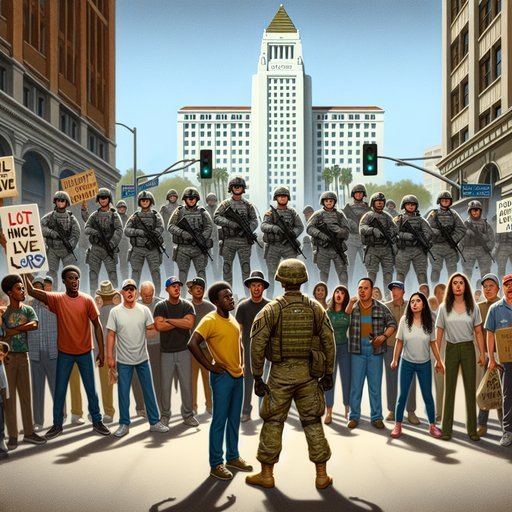
NATO has commenced a significant naval exercise, known as BALTOPS, in the Baltic Sea, reflecting the alliance's steadfast commitment to the region's security. As concerns mount over Russia's 'ghost fleet' operations, this exercise aims to bolster allied resolve and enhance maritime coordination among member states. This defensive maneuver comes amid diversified global defense movements, including calls from Mexican leadership for broader regional security cooperation.

Recent days have underscored the sharp ideological divides that shape today's policy debates, ranging from local unrest in Israel to geopolitical tremors in South America. In Israel, a controversial riot at an Israeli-Palestinian memorial ceremony remains unresolved a month later, fueling tensions within the political landscape [1]. Meanwhile, in Argentina, President Javier Milei seizes on his economic successes to consolidate power ahead of looming elections, illustrating another facet of the ideological struggle playing out globally [2]. At the same time, notable policy proposals address newer societal issues, such as the protections for military reservists [3], amidst a backdrop of unrest and political realignment.

As tensions in Eastern Europe reach new heights, the United States has announced plans to increase economic sanctions on Russia. This move comes after Russia intensified its military operations in Ukraine's Sumy and Dnipropetrovsk regions, raising global concerns about regional stability. Ukraine has lost over 190 square kilometers in the Sumy region alone, while negotiations for peace continue to falter [1][4].

In a dramatic escalation of tensions, California has become a flashpoint in the national debate over immigration enforcement, with protests raging across Los Angeles in response to aggressive Immigration and Customs Enforcement (ICE) raids. President Donald Trump, doubling down on his hardline immigration stance, deployed 2,000 California National Guard troops to the city on June 8, 2025, overriding the explicit objections of Governor Gavin Newsom, who condemned the move as “purposefully inflammatory” and a “serious breach of state sovereignty.” This unprecedented federal action has ignited a firestorm of criticism, raised legal questions, and deepened the divide between state and federal leadership, all while protesters clash with law enforcement in the streets.

As financial and strategic tensions escalate across the Atlantic, recent developments indicate a complex interplay of economic and geopolitical dynamics between the United States and Europe. With the European Central Bank's latest interest rate cuts contrasting sharply with the Federal Reserve's more cautious stance, transatlantic trade tensions are being aggravated. Meanwhile, European leaders are also emphasizing the importance of focusing on defense collaboration rather than allowing trade disputes to undermine strategic alliances.

The Labour Party in the United Kingdom marks one year in power amidst burgeoning debate over its immigration policies. The administration, which won the general election last year, has seen a pronounced increase in the arrests of illegal migrant workers. This significant rise—by 51%—has prompted discussions on the effectiveness and humanitarian impact of Labour's approach. With a strong mandate to reform both economic and social policies, the party's actions are setting the stage for potential political shifts in the country.

In a significant display of naval capability and strategic partnership, NATO has initiated a large-scale naval exercise in the Baltic Sea. Concurrently, the United Kingdom has announced ambitious plans to bolster its naval powers through the construction of new nuclear submarines under the AUKUS pact. These developments highlight a coordinated effort by Western allies to enhance maritime security and project power across crucial global waterways.

Recent events in the United States and Germany have brought migration and border policy back to the forefront of international discussion. Both nations are grappling with significant legal and political challenges related to their approaches to migration control. In the United States, a polarizing political debate has intensified following a deadly attack linked to immigration policy. Simultaneously, Germany's judicial system has scrutinized its own border policies, questioning their legality and effectiveness in addressing migration issues. These developments have prompted a reevaluation of current strategies and potential impacts on international relations.

As the U.S. government edges closer to a potential shutdown, tensions between President Donald Trump and billionaire entrepreneur Elon Musk have taken center stage. Originally rooted in political disagreements, their feud has now intertwined with national budget negotiations, causing lawmakers to express concern over its impact on critical spending bills. At the core of the dispute is a contentious proposal within Trump's budget bill, which critics warn could dramatically weaken judicial authority. Musk, vocal in his opposition, has sparked a political standoff that complicates legislative proceedings already filled with compromise and concessions.

In an escalating spiral of conflict, new sanctions have been announced against Russia in response to the intensifying war with Ukraine and the apparent collapse of peace negotiations. The international community is taking decisive action as the war inches closer to a humanitarian catastrophe, now approaching 1.4 million casualties [5]. These measures aim to pressure Moscow to return to peace talks and pivot from its current military strategies.
























